Testimonials.
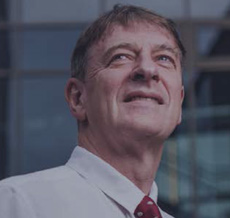
The Institute creates an interdisciplinary environment in which biologists work together with physicists, mathematicians and engineers to uncover the fundamental processes underlying diseases and develop new approaches to their detection, prevention and cure. This innovative approach lends itself to working with business and industry to resolve real world issues. Speaking about his engagement with industry Professor Ingham said “I’ve enjoyed working with pharmaceutical and biotech companies, especially helping them to think outside the box by introducing non-conventional model systems, such as fruit flies and zebrafish into their R&D programmes."
Professor Philip Ingham, FMedSci FRS, Director of the Living Systems Institute
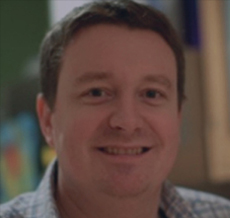
At Exeter, I have formed strong links over several years with large international engineering companies such as Rolls-Royce, and with smaller companies in the South West such as Supacat and Centek. Large or small, all of these companies need to pull through new technology to solve challenging problems, for instance working out new ways of damping unwanted vibrations in aeroengines, or in designing hybrid power systems for off road vehicles.
At Exeter I have the freedom and support to build long-term and strong industry links, and in doing so expand and refresh my own research horizons and to help make real changes to UK companies.
Professor Chris Smith, College of Engineering, Mathematics and Physical Sciences
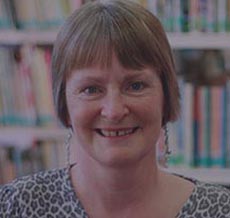
Working with community and business partners lends new perspectives to my research into education and is supported at a strategic level by the University. Collaborating with external partners like Pearson provides exciting avenues for generating impact – we are currently working together evaluating how BTEC qualifications prepare students for higher education.
Professor Debra Myhill, Professor of Education

To aid early diagnosis of dementia and the quest for better treatments, we must urgently find out more about how damage occurs in specific brain circuits in these conditions.
Since coming to Exeter we have gained support to do work of this nature from a spectrum of partners. These include public sector funders such as the Medical Research Council and Royal Society and major UK research charities such as the Alzheimer’s Society, Alzheimer’s Research UK and the Wellcome trust. We also have formed valuable co-funded collaborative relationships with a number of companies in pharmaceutical R&D.
Working with best minds across sectors means we are able to achieve more in our chosen field of research.
Professor Andrew Randall, Professor in Applied Neurophysiology
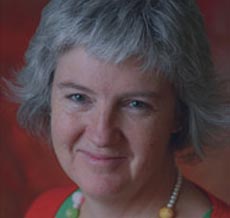
Working with industry and Government actors is fundamental to my research on energy policy. External partners are an integral part of the University of Exeter Energy Policy Group which brings together policy makers, industry leaders and academics to find new and innovative approaches for enabling the transition to a low carbon, sustainable and affordable energy system. Our connections with external partners enhances our credibility and relevance for GB energy policy-making and wider international contacts.
Catherine Mitchell, Professor of Energy Policy
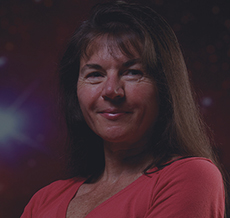
I work in close partnership with the UK Met Office to study the atmosphere of planets outside our solar system known as extra-solar planets.
This collaboration has combined the expertise of both organisations to create new state of the art atmosphere models which are used for the interpretation of observations of extra solar planets. Working together we have adapted UK Met Office software which is used to predict Earth’s weather and climate to study gas giant and terrestrial planets.
Having a strong partnership with the world’s leading climate science research centre enables the University of Exeter to be at the forefront of an exciting, emerging field, with direct impact on the understanding of planetary climates, including our own.
Professor Isabelle Baraffe, Professor of Astrophysics
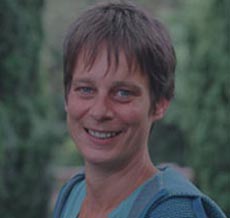
I am working with external partners including Centrica, local businesses and individuals to develop a pioneering trial of a local energy market in Cornwall.
This £19m project funded by Centrica and the European Regional Development Fund is testing the use of flexible ways of storing and managing energy. This could revolutionise the way we use and think about energy in the future, giving households and businesses more control over their energy.
Working in partnership means we are able to pursue exciting avenues like this moving towards a more sustainable electricity system.
Dr Bridget Woodman, Deputy Director of Energy Policy Group
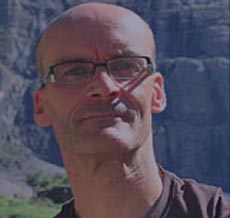
Partnerships with large pharmaceutical and chemical companies including AstraZeneca, BASF and Syngenta have provided my team with access to a wide range of practical and business expertise with direct benefits to our research development. Importantly these partnerships have helped to generate novel approaches for drug and chemical assessments with exciting opportunities for generating real world impact.
Professor Charles Tyler, Professor of Environmental Biology
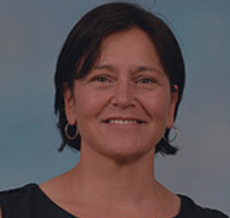
In my research I combine advanced quantitative methods with large data sets to understand the development of political preferences and public opinion over time and across countries. I was one of the first quantitative political scientists hired in Politics 10 years ago and since that time have worked with others to build expertise and capacity in quantitative methods recruiting new academic staff, post-docs and PhD students. We now host the Nuffield, ESRC and Hefce funded Exeter Q-Step Centre that has allowed us to make a step change in social science quantitative methods, training and research. We work with partners in industry and the public sector to provide opportunities for students to apply data analysis skills in the workplace and share expertise on innovative methodologies. Exeter has supported this evolution of expertise and activity through assisting funding applications, strategic use of resources, encouraging input on strategic priorities and helping us to identify and develop industry partnerships for work placements and knowledge exchange.
Professor Susan Banducci, Professor in Politics
